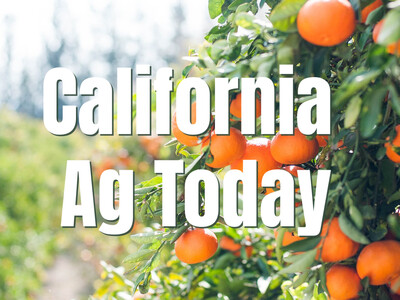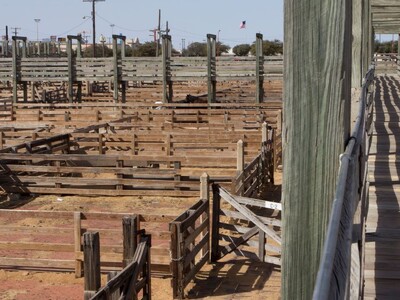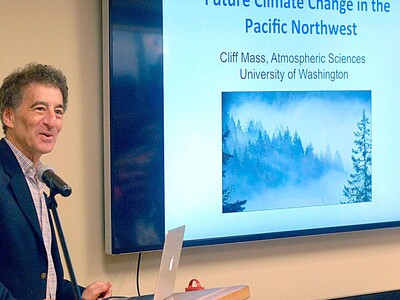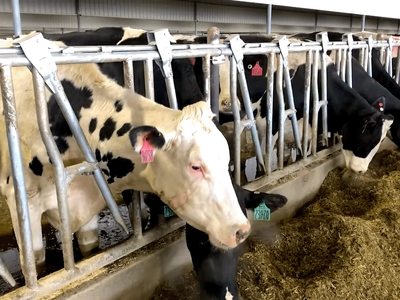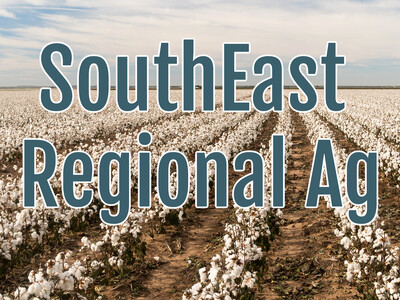Ag Awards
During this year’s Idaho Ag Summit, guest speaker Luther Markwart said this is one of the most exciting times to be in agriculture.But he also said the world is changing rapidly because of technology and farmers and ranchers need to be ready to change as well if necessary.
“In any single moment, things can change dramatically, and you have to adapt … and figure out how to navigate,” said Markwart, executive director of the American Sugarbeet Growers Association.
The theme of the 2024 Larry Branen Idaho Ag Summit, held Jan. 20 in Boise, was, “Seeds of Change: Navigating the Future of Idaho Agriculture.”
The annual summit attracts a couple hundred farmers, ranchers, agribusiness representatives and other leaders of Idaho’s agricultural industry.
“When I look at this room, I see living seeds,” Markwart said. “Your voices, your knowledge, your experience is incredibly important.”
With all the challenges facing the U.S. agriculture industry right now, from fast-changing technology to government regulations to lawsuits and the need for a new farm bill, agricultural producers need to be engaged and now is not the time to be shy, he said.
“Sitting on our hands is not an option,” said Markwart, who was raised on a family dairy farm in Michigan and has been a leader and advocate for the sugar beet industry for more than 40 years. “You feed people. That’s kind of important.”
Pat Takasugi Leadership Award
During the Ag Summit, Glenn Shewmaker, a former Extension forage specialist with University of Idaho, was presented with the Pat Takasugi Leadership Award, which is named after the late director of the Idaho State Department of Agriculture and given to someone who has shown strong leadership for Idaho agriculture.
During his tenure with U of I, Shewmaker was located at the Kimberly Research and Extension Center and authored 21 scientific papers, two books, 23 book chapters, 25 peer-reviewed articles, 138 proceedings and popular press articles, said Will Ricks, president of the Idaho Hay and Forage Association.
Shewmaker was raised on an irrigated row crop and forage farm near Kimberly and is still involved with the family’s farm.
Ricks said Shewmaker has played a cooperative role with the Idaho Hay and Forage Association through the years in coordinating the educational portion of the group’s annual meeting for producers and is frequently asked to speak at state and regional programs related to his expertise in hay and forage production.
Five people received Governor’s Awards for Excellence in Agriculture during the summit. These awards recognize people for their contributions to Idaho’s agriculture industry.
Videos highlighting their contributions were shown before the awards were presented.
“You cannot honor people of agriculture if you don’t see them in their native state,” said Gov. Brad Little, speaking about the videos.
“A common denominator in the videos is that there are a lot of families in those pictures,” said Little, a rancher and farmer from Emmett. “As I always say, we produce a lot of potatoes and cattle and cheese and dairy and yogurt and sugar, but the most important crop we produce in Idaho is young farmers and ranchers and this is a tribute to that.”
Lifetime Achievement – Stanley T. Boyd
According to his award bio, since being hired as executive director of the Idaho Wool Growers Association in 1978, “Stan has devoted his life to Idaho agriculture.”
While serving as director of the wool growers, Boyd, who was raised on the family sheep ranch, also became secretary of the Idaho Sheep Commission and secretary of the Idaho State Predatory Board.
Within a few years, he also began lobbying for the Idaho Cattle Association, Idaho Horse Breeders Association, Idaho Elk Breeders Association and Idaho Horse Racing Association, as well as other organizations.
As general manager of the Rocky Mountain Sheep Marketing Association, Boyd is responsible for marketing and shipping more than 70,000 lambs in Idaho and surrounding states.
“Stan has a passion for all ag issues but especially for the sheep industry,” his bio states.
“It’s just been a real pleasure to work with family and friends over the years,” he said upon receiving the award.
Environmental Stewardship – Lance Griff
Griff, who pursued a degree in agriculture, science and technology at the University of Idaho, works full-time as a partner in Griff Farms, where he farms with his father and business partner.
The farm includes 3,800 acres of wheat, beans, corn and alfalfa on the Salmon Tract south of Twin Falls.
According to his award bio, 10 years after he began farming full-time, Griff began seeking a better way to use scarce water resources in the area and increase irrigation efficiency.
One solution he identified was no-till farming and the use of cover crops and in 2013 he began experimenting with cover crops to try to improve soil health and water efficiency.
According to his bio, he began to see extremely positive results from this practice and the use of cover crops has also led to the farm using less fuel, as well as reducing the chance for fertilizer to run off the field into water sources.
Griff has been recognized by several organizations for his innovative farming practices, according to his award bio.
“Lance thinks outside the box with an eye toward long-term sustainability, efficiency and profitability on the farm,” his bio states.
Griff’s parents, Ron and Janie Griff, received the award on his behalf because he was out of town that day.
Marketing Innovation – Jack Brown
Brown, a University of Idaho researcher, has been involved in developing superior genetic varieties of industrial, edible and condiment mustard and canola for a wide range of environments in the Pacific Northwest and around the world for more than 28 years, according to his award bio.
During his tenure as a plant breeder, geneticist, professor and department head of the Brassica Breeding and Research Program at the U of I, “Brown has worked hard to build up the reputation of the little-known, under-appreciated canola plant,” his bio states. “He was instrumental in developing many new varieties of canola, mustard and rapeseed.”
Under Brown’s direction, the university has played a key role in developing new uses of canola, rapeseed and mustard plants, his bio states. He also introduced the concept of planting canola early, foraging the crop for livestock and then harvesting the seed.
Canola yields have increased at least two-fold in the nearly three decades that Brown has worked on the plants, according to his bio.
“The best thing that ever happened to me in my lifetime was to come to the state of Idaho and to work at the University of Idaho,” he said after receiving his award.
Education/Advocacy – Cordell and Jamie Kress
“Cory” and Jamie Kress own and operate a dryland farm in the Rockland Valley of Power County in east Idaho. The family operation includes a crop rotation of winter wheat, safflower, mustard, dry peas and canola.
According to their award bio, “Cory and Jamie are actively involved in several boards and organizations, working with their leadership groups to make an impact that is meaningful to agriculture in Idaho.”
Cory has served on the Idaho Oilseed Commission and currently serves on the Idaho Wheat Commission. Jamie recently completed her role as president of the Idaho Grain Producers Association, serving as the first female president in the organization’s history.
“Cory and Jamie are both natural connectors; they know the importance of relationships in state and national agriculture and they work hard to build strong, poignant, sensible affiliations,” their award bio states.
“We love the opportunities that we’ve been given,” Jamie Kress said after they received their award. “We’re here for our friends. We’re here because we love agriculture and the people in the room matter so much to us….”






